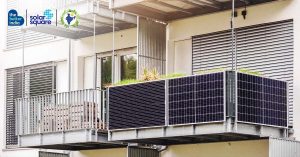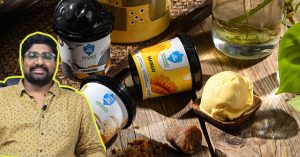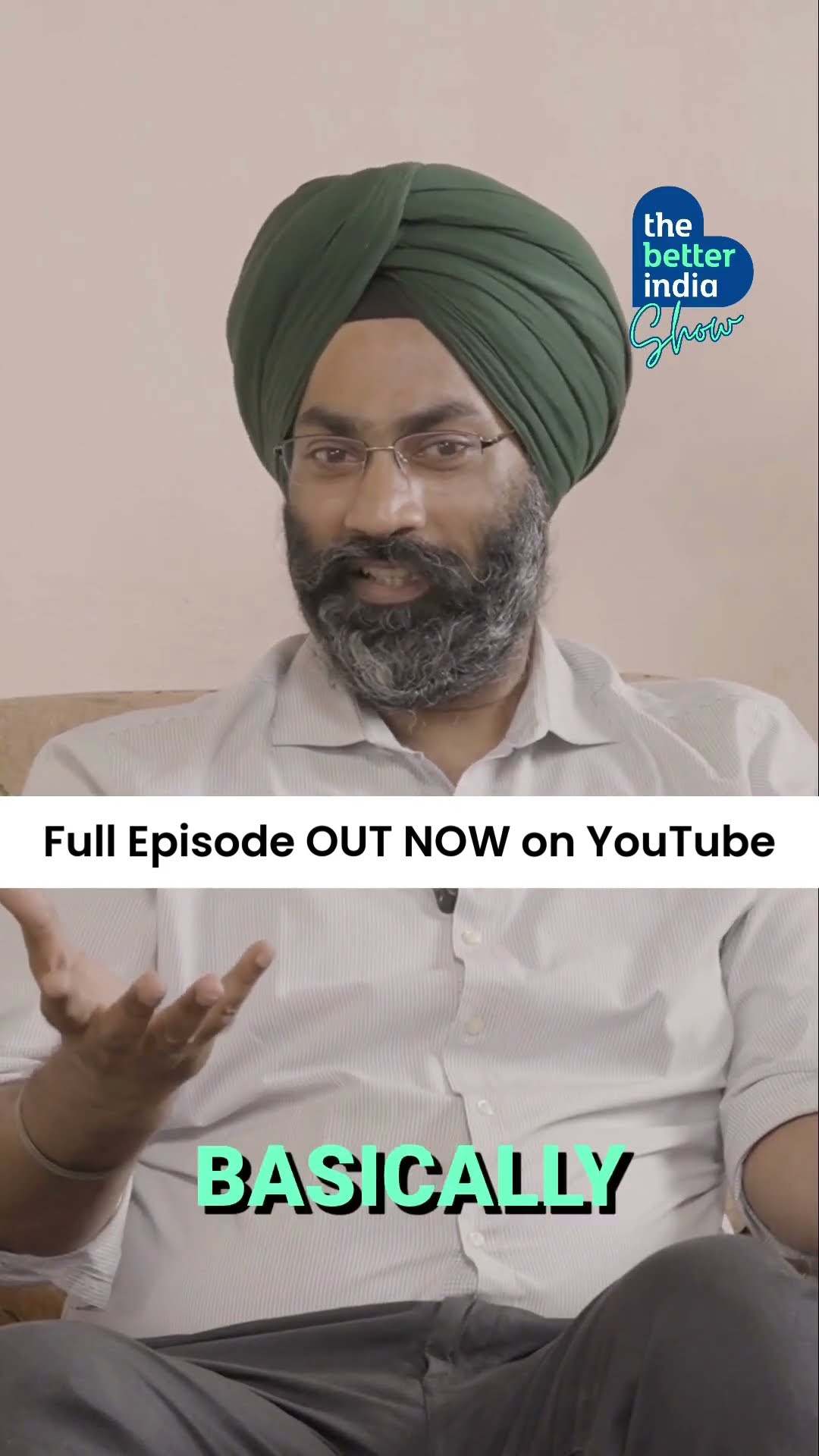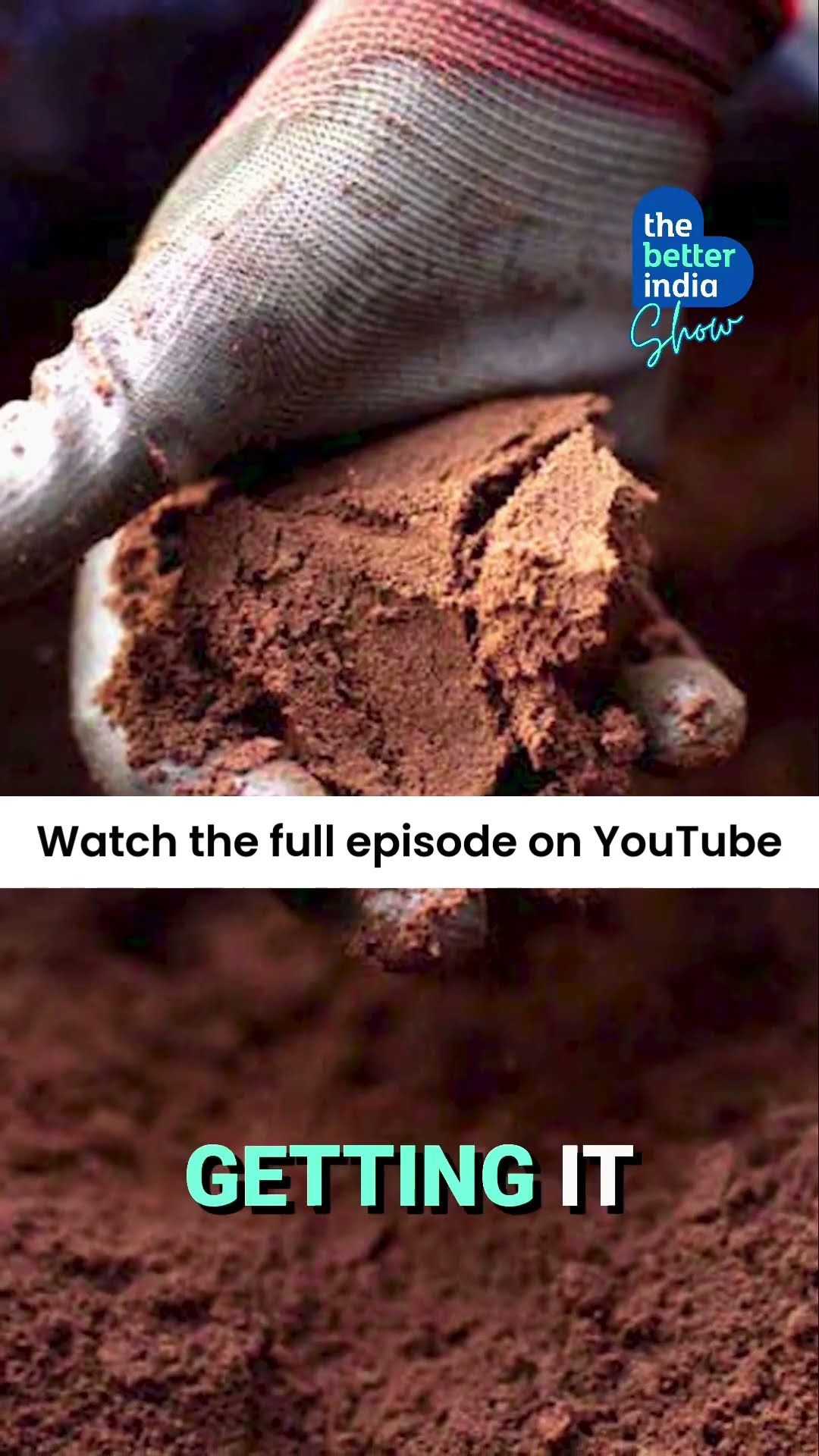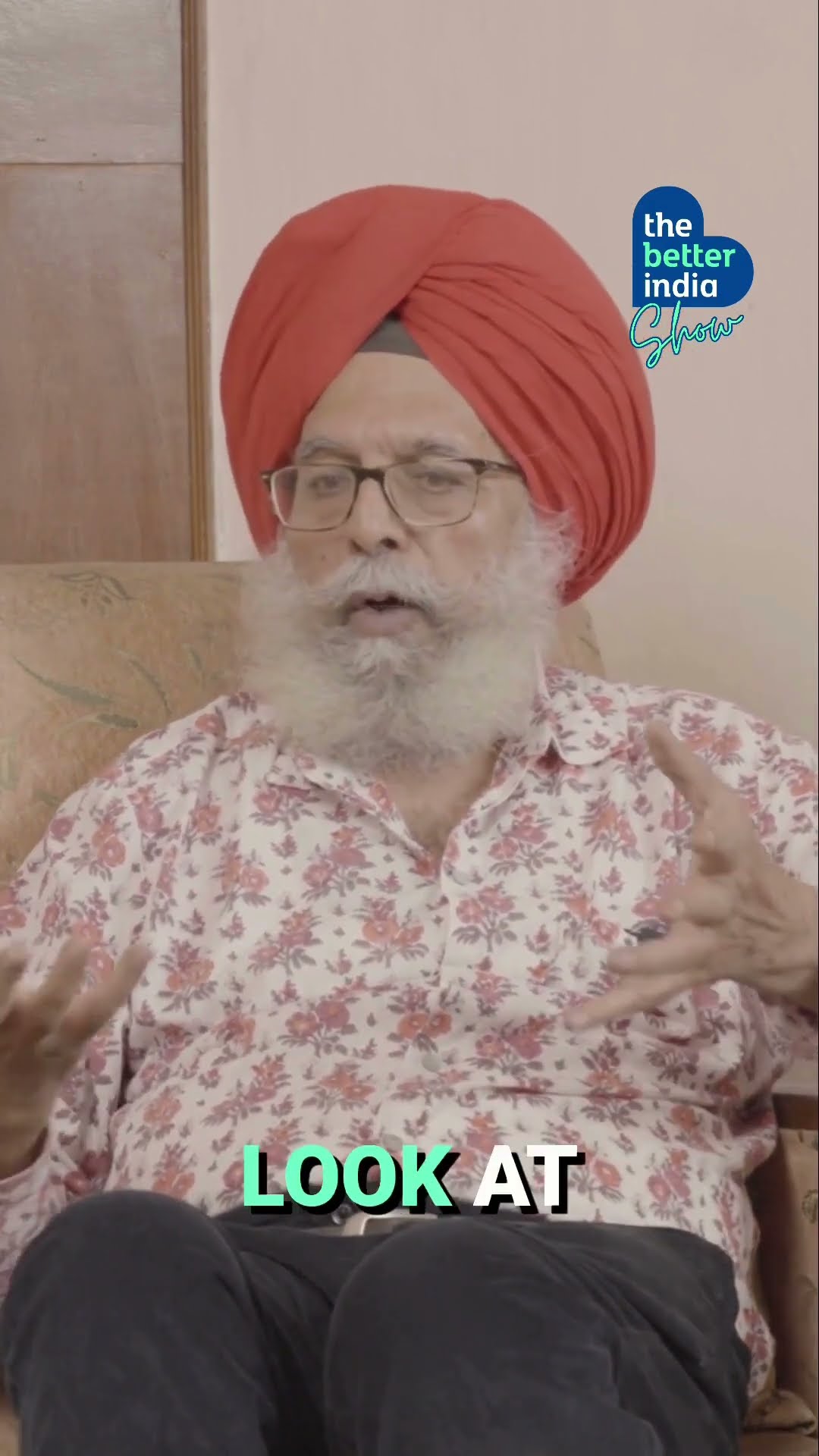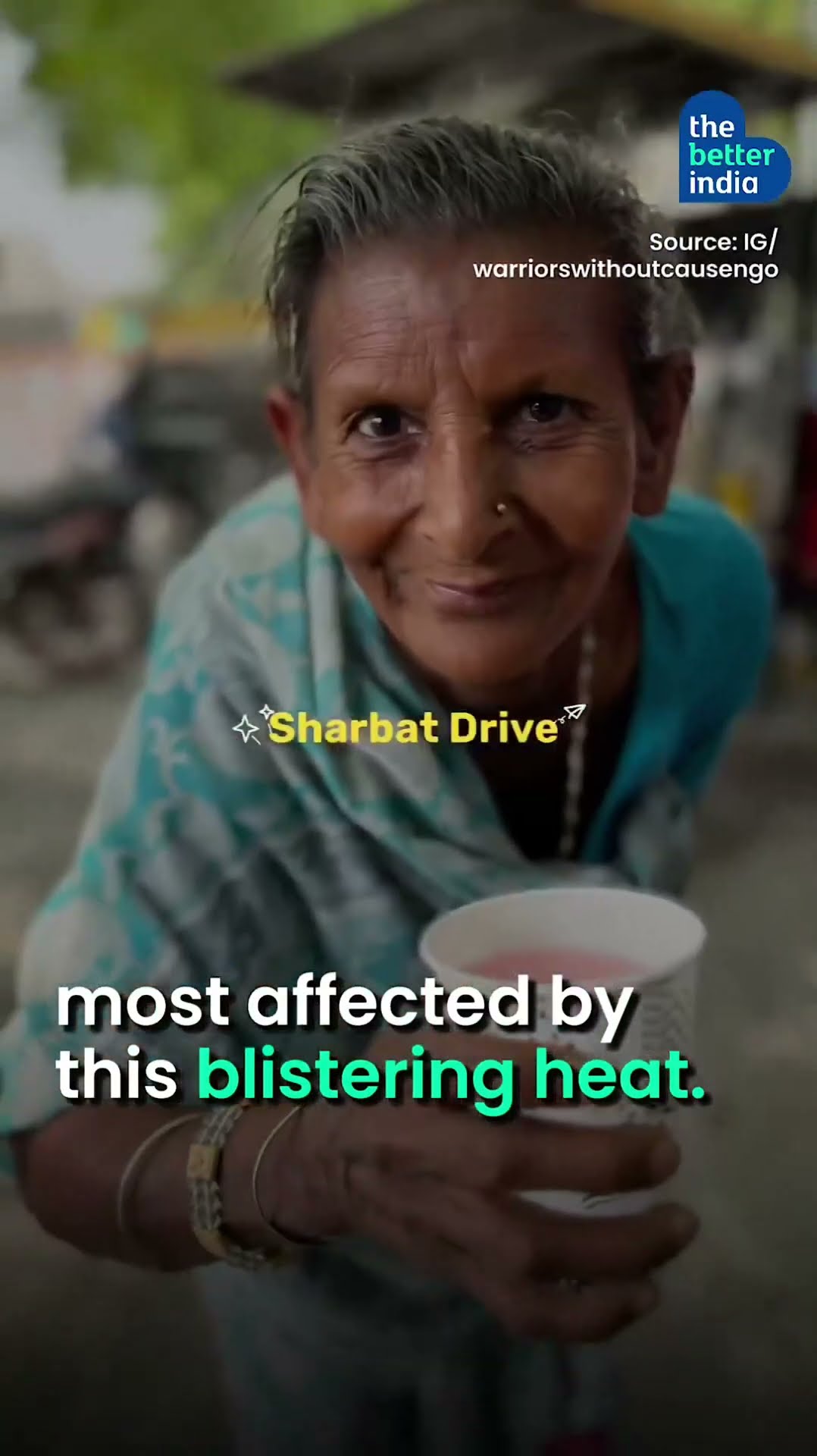These Bottles Decompose in 180 Days & Look Like They’re Made of Plastic!
Delhi-based Nikhil Kumar and Chintan Prajapati started Greenevon Bio Bottles, a startup that makes plastic-like items using sugarcane. Their products are biodegradable and decompose in 180 days.
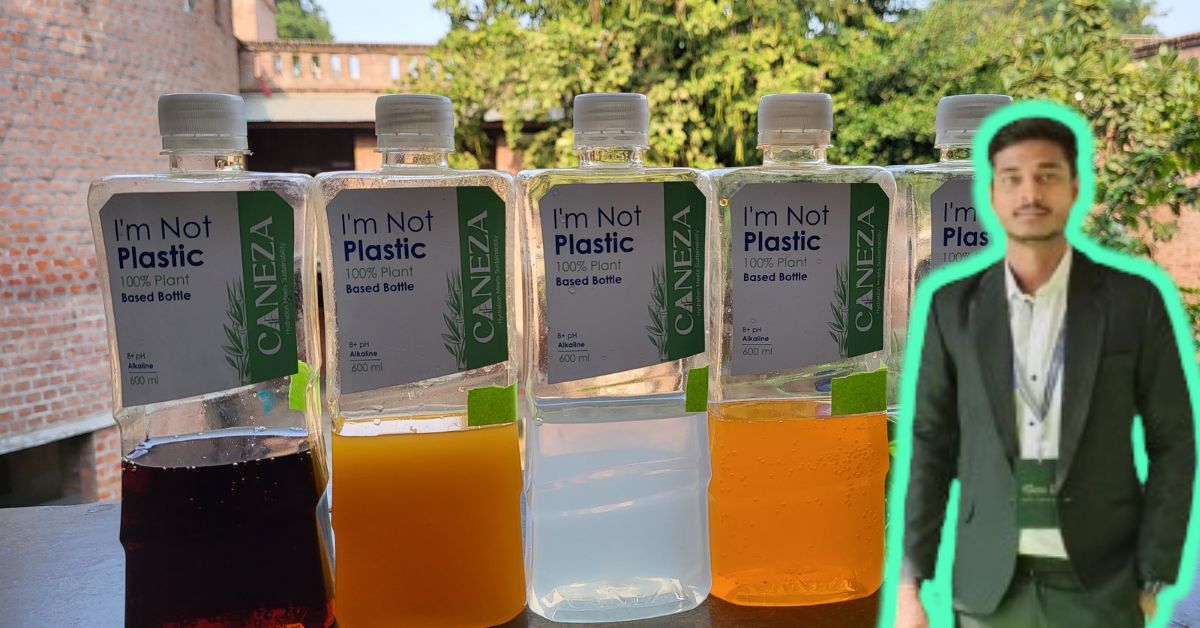
From storing water to juices and various other daily essentials, plastic containers have become ubiquitous in our surroundings. Despite India’s ban on single-use plastic, we see little change in the amount of plastic waste in landfills. While many states have enforced bans on single-use plastic, plastic water bottles remain a common source of plastic waste ending up in landfills.
According to a report by Moneycontrol, “Approximately 2.8 lakh tonnes of plastic bottle waste goes uncollected annually. The environmental impact is significant. Macroplastics, including PET, often clog sewage systems in urban and rural areas, pollute rivers, lakes, and beaches, and degrade the aesthetic and ecological value of tourist destinations and landscapes.”
To combat the escalating issue of plastic waste, many individuals and changemakers have devised various solutions. Among these innovators is Nikhil Kumar of Greenevon Bio Bottles, who has pioneered a bottle made from sugarcane!
“The bottle is 100% biodegradable and 100% natural made using sugarcane. These bottles are environment friendly and only take 180 days to degrade when exposed to moisture and high temperatures,” Nikhil tells The Better India.
So how did this innovator innovate a bottle using a plant? We were as intrigued as you are.
‘It is my dream to make the world greener’
Born and raised in Delhi, Nikhil always harboured a passion for business. After completing his graduation, he resolved to embark on an entrepreneurial journey of his own.
“This isn’t my first venture into the business world. I’ve always been driven to create something that’s uniquely mine. Initially, I ventured into the coffee industry, followed by a stint in the clothing business, before transitioning into eco-friendly ventures,” he shares.
Like many of us, Nikhil grew up surrounded by the prevalent use of plastic bottles. “It wasn’t an overnight realisation, but I’ve always been conscious of environmental issues for as long as I can recall. However, when it came to taking action, I felt a sense of purpose,” he explains.
Nikhil often stumbled upon articles highlighting the escalating plastic waste crisis in the country. “I became increasingly aware of the problem, and as an entrepreneur, I felt compelled to seek a solution,” he asserts.
While Nikhil acknowledges that there are a few alternative options to plastic, he was determined to develop a product that resembled plastic in appearance and affordability but was environmentally friendly.
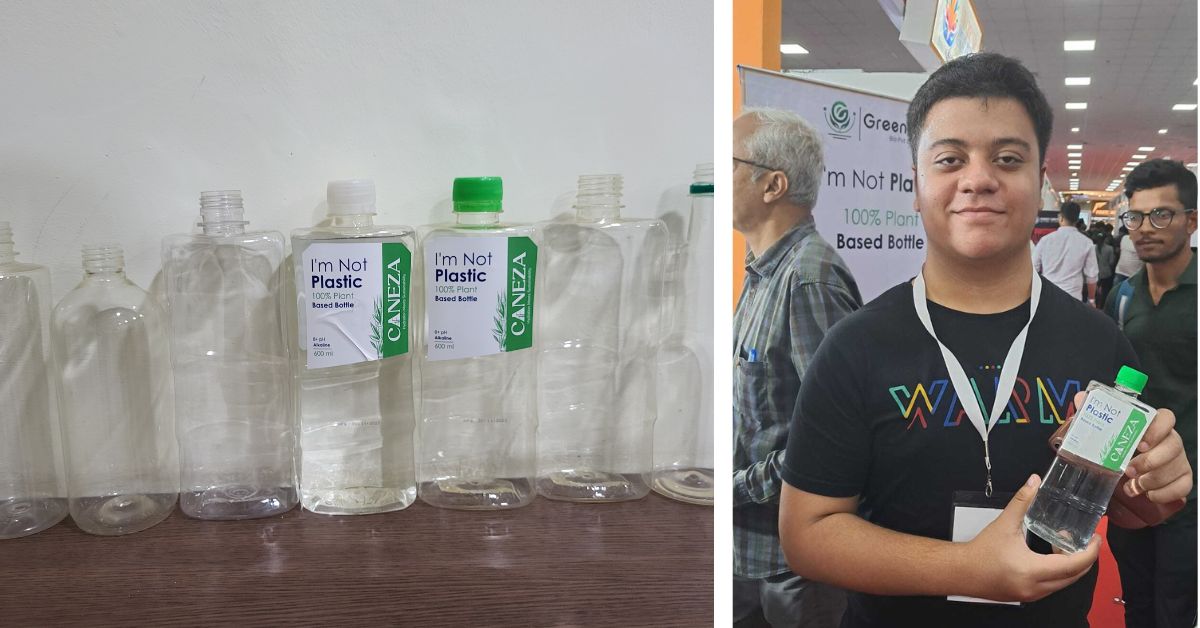
“I wanted to take a break from my previous startup and focus solely on finding the right alternative,” he says. So, in 2021, he decided to sell his startup and concentrate fully on research.
He delved into reading about alternatives that were currently available in the country and around the world. “There are alternatives like copper, bamboo, and various forms of wood that people are using instead of plastic. However, I realised that these alternatives have their own drawbacks — they are expensive for widespread use and tend to be heavyweight. These issues pose logistical challenges for manufacturers looking to use them in packaging,” he notes.
Nikhil decided to look for alternatives that were lighter in weight and sturdier in nature.
Finding the right niche
In 2021, he co-founded Greenevon Bio Bottles along with Chintan Prajapati.
“Chintan joined me midway through my research. While I was confident in my direction, I wanted to concentrate solely on research and sought someone who could effectively market the product. Chintan was the perfect fit for this role, and our responsibilities are divided along similar lines,” he shares.
Sitting across from me, holding a bottle that resembled a typical single-use plastic bottle — with the words ‘I am a bottle but I am not plastic’ printed on it — Nikhil is confident that the bottle will decompose in nature within six months or 180 days.
“You can tap the bottle, and it will sound like plastic; you can touch it, you can feel it — it looks identical. The only difference is that it’s biodegradable, plant-based, and environmentally friendly,” he says.
Speaking about the material and the manufacturing process, Nikhil explains, “During my research, I explored how plants could be utilised to create various materials. Just as plants can be used to make leather, I was investigating similar possibilities when I stumbled upon the remarkable properties of sugarcane.”
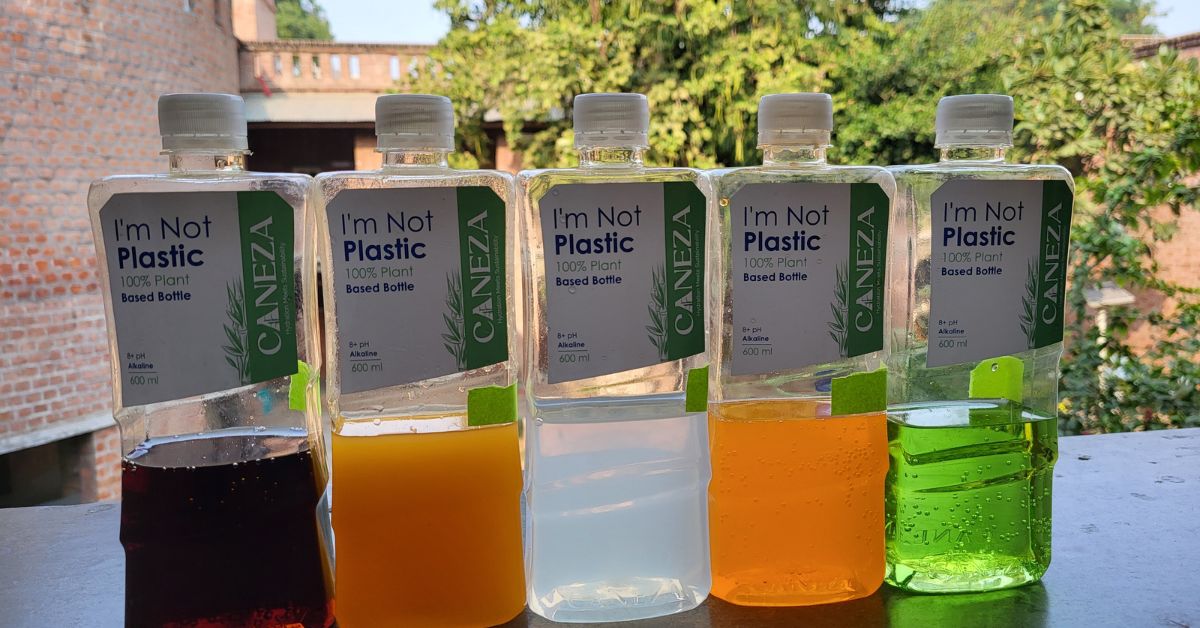
“Sugarcane possesses an incredible stretch ratio and durability, and can also be made transparent. The combination of polycarbonate from the plant and starch forms the raw material for the bottles,” he elaborates.
It took Nikhil nearly two and a half years to refine the bottles to their present state. “Currently, the bottles can be moulded into various shapes, capable of holding both liquid and solid foods, and can withstand different temperatures,” he concludes.
However, this stage was achieved after a lot of trial and error. “The biggest hurdle that I faced while law designing these bottles was making them transparent under different temperatures and environments. The material reacted differently to the sun, cold, and rain, and it was a challenge to stabilise it,” shares Nikhil.
The bottles can hold liquids such as water and juices, semi-liquids, pharma products, dairy products, as well as solid food items. They can be shaped and moulded in any form such as containers.
“The three key factors that the bottle brings to the table are — It is 100% degradable, it is stable under 55-degree Celsius temperatures, and it has zero polycarbonate leaking,” he adds.
Regarding the affordability of the bottles, he explains, “Anything produced in smaller quantities tends to be slightly more expensive. While plastic bottles are very cheap, we are striving to make our product more affordable. Currently, our bottles are nearly eight times more expensive than single-use plastic bottles.”
“We’re in contact with many eco-conscious companies, like ours, who are interested in utilising our product. The niche we’ve identified comprises individuals focused on both the cost and sustainability aspects of the product,” he adds.
Reflecting on his journey thus far, Nikhil says, “When I started, I approached it with an innovator’s mindset. If I had been overly concerned about the affordability and market for the product, it would have been challenging for me to focus on the product itself. My motivation was to create something eco-conscious, and I left the rest to fate at that time. It was the passion to innovate that kept me going.”
The company is currently in the manufacturing stage and is aiming to launch the product in Indian markets within the next four months.
If you wish to know more about these unique plastic-like products, you can reach out to the team here.
(Edited by Pranita Bhat; All pictures credit: Greenevon Bottles)
If you found our stories insightful, informative, or even just enjoyable, we invite you to consider making a voluntary payment to support the work we do at The Better India. Your contribution helps us continue producing quality content that educates, inspires, and drives positive change.
Choose one of the payment options below for your contribution-
By paying for the stories you value, you directly contribute to sustaining our efforts focused on making a difference in the world. Together, let's ensure that impactful stories continue to be told and shared, enriching lives and communities alike.
Thank you for your support. Here are some frequently asked questions you might find helpful to know why you are contributing?




